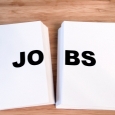Minimum Wage
The minimum wage is a critical social economic safeguard, setting a wage floor that should allow workers to meet their basic needs. The national minimum wage was first instituted in 1938 as a central feature of the Fair Labor Standards Act (FLSA). The Act also established overtime and child labor standards. It has been amended many times to increase the wage or expand coverage. Workers in some industries, such as agriculture, are exempt. The minimum wage is set by Congress, not by an independent agency as President Franklin Roosevelt originally proposed. It is not pegged to the cost of living and the real value of the federal minimum wage lags behind inflation. As a result, many states and cities have set their minimum wage rates higher than the federally mandated wage.
Commentary
Cry Wolf Quotes
Youth unemployment is three times the overall unemployment rate, and for minority youth it is much, much higher. Let us not make the problem worse by enacting a minimum wage which denies young people jobs.
This is an unemployment act that hurts minority youth, and that is a shame.
[The Fair Labor Standards Act] constitutes a step in the direction of communism, bolshevism, fascism, and Nazism.
Now, what is the effect of this law? Indeed, I admit, some will have a mandated pay raise in America. Those will be the lucky ones. Many more will have their hours cut, Mr. Speaker. Many will have their benefits cut due to this law, and many will lose their jobs. And again, thousands, thousands will be denied that opportunity to climb on that first rung of the economic ladder in America and, instead, be condemned to a life of poverty. This should not happen in America.
Related Laws and Rules
Evidence
-
States with Minimum Wages above the Federal Level have had Faster Small Business and Retail Job Growth
The authors decisively disprove the argument that the minimum wage takes a particularly cruel toll on small businesses, which frequently employ low-wage workers (and operate on thin profit margins).
-
The Wage and Employment Impact of Minimum-Wage Laws in Three Cities
The Economic Policy Research analyzes the effects of minimum wage increases in Santa Fe, San Francisco and Washington D.C., in comparison with their surrounding suburbs and nearby urban centers that didn’t experience similar wage hikes.
-
The Minimum Wage Merry-Go-Round
Ezra Klein neatly dismantles the usual conservative arguments against the minimum wage.
-
Making Work Pay: The Impact of the 1996-97 Minimum Wage Increase
The Economic Policy Institute study shows that the Clinton-era minimum wage increases mostly supported the wages of low-income adults.
Backgrounders & Briefs
Good Rules: Ten Stories Of Successful Regulation
Demos looks at ten laws and rules that we take for granted.
Minimum Wage Policy Brief
By Professor Stephanie Luce
The idea of minimum wage laws has been around for more than a century. They are still a good idea.
Resources
Raise the Minimum Wage is a project of the National Employment Law Project. The effort is devoted to preserving the wage floor by raising the federal minimum wage.
University of California-Berkeley Labor Center carries out research on labor and workplace-related issues.
The National Employment Law Project is an organization that promotes economically just public policy in the face of the prevailing trends of the law several decades.


